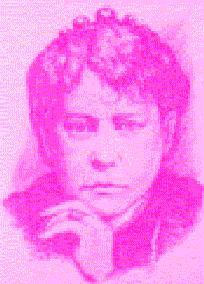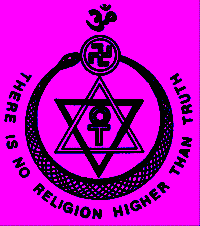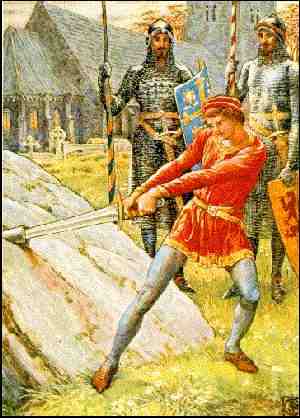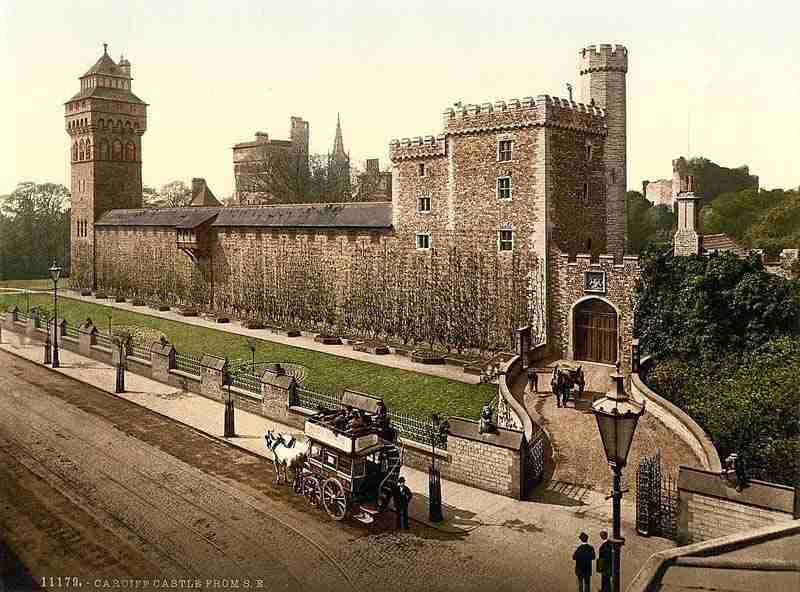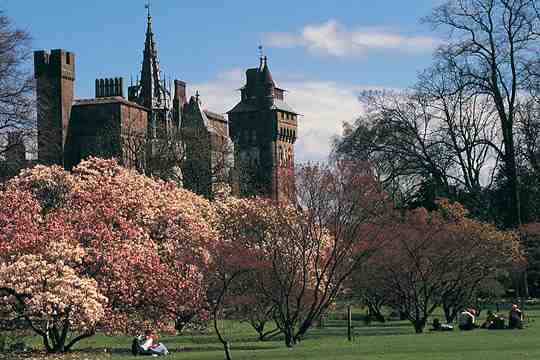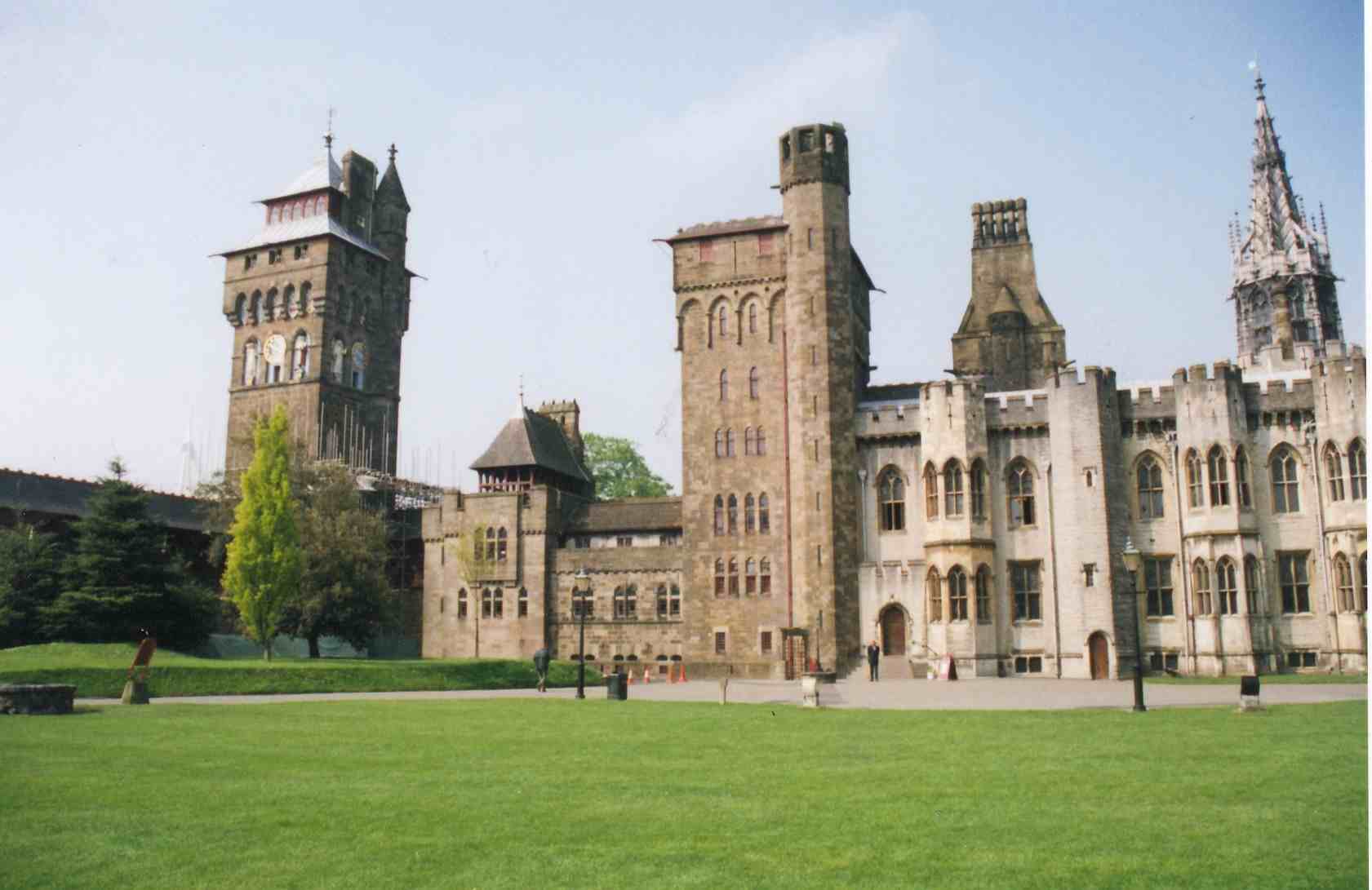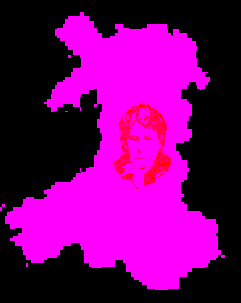
The All
Getting Started in
Theosophy
(And it’s all Free Stuff )
But you don’t have to live in Wales
to find this guide useful
Helena Petrovna Blavatsky
1831 – 1891
____________________
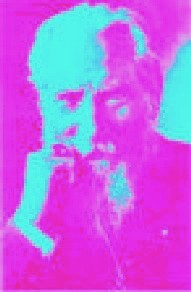
The Purpose of Life
From
A Textbook of Theosophy
By
C
To fulfill
our duty in the divine scheme we must try to understand not only that scheme as
a whole, but the special part that man is intended to play in it. The divine
outbreathing reaches its deepest immersion in matter in the mineral kingdom,
but it reaches its ultimate point of differentiation not at the lowest level of
materiality, but at the entrance into the human kingdom on the upward arc of
evolution. We have thus to realize three stages in the course of this
evolution:
(a) The downward arc in which the tendency is
toward differentiation and also toward greater materiality. In this stage
spirit is involving itself in matter, in order that it may learn to receive
impressions through it.
(b) The earlier part of the upward arc, in
which the tendency is still toward greater differentiation, but at the same
time toward spiritualization and escape from materiality. In this stage the spirit
is learning to dominate matter and to see it as an expression of itself.
(c) The later part of the upward arc, when
differentiation has been finally accomplished, and the tendency is toward unity
as well as toward greater spirituality. In this stage the spirit, having learnt
perfectly how to receive impressions through matter and how to express itself
through it, and having awakened its dormant powers, learns to use these powers
rightly in the service of the Deity.
The object
of the whole previous evolution has been to produce the ego as a manifestation
of the Monad. Then the ego in its turn evolves by putting itself down into a
succession of personalities. Men who do not understand this look upon the
personality as the self, and consequently live for it alone, and try to
regulate their lives for what appears to be its temporary advantage. The man
who understands realizes that the only important thing is the life of the ego,
and that its progress is the object for which the temporary personality must be
used. Therefore when he has to decide between two possible courses he thinks
not, as the ordinary man might: “Which will bring the greater pleasure and
profit to me as a personality?” but “Which will bring greater progress to me as
an ego?” Experience soon teaches him that nothing can ever be really good for
him, or for any one, which is not good for all, and so presently he learns to
forget himself altogether, and to ask only what will be best for humanity as a
whole.
Clearly
then at this stage of evolution whatever tends to unity, whatever tends to
spirituality, is in accord with the plan of the Deity for us, and is therefore
right for us, while whatever tends to separateness or to materiality is
certainly equally wrong for us. There are thoughts and emotions which tend to
unity, such as love, sympathy, reverence, benevolence; there are others which
tend to disunion, such as hatred, jealousy, envy, pride, cruelty, fear.
Obviously the former group are for us the right, the latter group are for us the
wrong.
In all
these thoughts and feelings which are clearly wrong, we recognize one dominant
note, the thought of self; while in all those which are clearly right we
recognize that the thought is turned toward others, and that the personal self
is forgotten. Wherefore we see that selfishness is the one great wrong, and
that perfect unselfishness is the crown of all virtue. This gives us at once a
rule of life. The man who wishes intelligently to co-operate with the Divine
Will must lay aside all thought of the advantage or pleasure of the personal
self, and must devote himself exclusively to carrying out that Will by working
for the welfare and happiness of others.
This is a
high ideal, and difficult of attainment, because there lies behind us such a
long history of selfishness. Most of us are as yet far from the purely
altruistic attitude; how are we to go to work to attain it, lacking as we do
the necessary intensity in so many of the good qualities, and possessing so
many which are undesirable?
Here comes
into operation the great law of cause and effect to which I have already
referred. Just as we can confidently appeal to the laws of nature in the
physical world, so may we also appeal to these laws of the higher world. If we
find evil qualities within us, they have grown up by slow degrees through
ignorance and through self-indulgence. Now that the ignorance is dispelled by
knowledge, now that in consequence we recognize the quality as an evil, the
method of getting rid of it lies obviously before us.
For each
of these vices there is a contrary virtue; if we find one of them rearing its
head within us, let us immediately determine deliberately to develop within
ourselves the contrary virtue. If a man realizes that in the past he has been
selfish, that means that he has set up within himself the habit of thinking of
himself first and pleasing himself, of consulting his own convenience or his
pleasure without due thought of the effect upon others; let him set to work
purposefully to form the exactly opposite habit, to make a practice before
doing anything of thinking how it will affect all those around him; let him set
himself habitually to please others, even though it be at the cost of trouble
or privation for himself. This also in time will become a habit, and by
developing it he will have killed out the other.
If a man
finds himself full of suspicion, ready always to assign evil motives to the
actions of those about him, let him set himself steadily to cultivate trust in
his fellows, to give them credit always for the highest possible motives. It
may be said that a man who does this will lay himself open to be deceived, and
that in many cases his confidence will be misplaced. That is a small matter; it
is far better for him that he should sometimes be deceived as a result of his
trust in his fellows than that he should save himself from such deception by
maintaining a constant attitude of suspicion. Besides, confidence begets
faithfulness. A man who is trusted will generally prove himself worthy of the trust,
whereas a man who is suspected is likely presently to justify that suspicion.
If a man
finds in himself the tendency toward avarice, let him go out of his way to be
especially generous; if he finds himself irritable, let him definitely train
himself in calmness; if he finds himself devoured by curiosity, let him
deliberately refuse again and again to gratify that curiosity; if he is liable
to fits of depression, let him persistently cultivate cheerfulness, even under
the most adverse circumstances.
In every
case the existence of an evil quality in the personality means a lack of the
corresponding good quality in the ego. The shortest way to get rid of that evil
and to prevent its reappearance is to fill the gap in the ego, and the good
quality which is thus developed will show itself as an integral part of the
man’s character through all his future lives. An ego cannot be evil, but he can
be imperfect. The qualities which he develops cannot be other than good
qualities, and when they are well defined they show themselves in each of all
his numerous personalities, and consequently those personalities can never be
guilty of the vices opposite to these qualities; but where there is a gap in
the ego, where there is a quality undeveloped, there is nothing inherent in the
personality to check the growth of the opposite vice; and since others in the
world about him already possess that vice, and man is an imitative animal, it
is quite probable that it will speedily manifest itself in him. This vice,
however, belongs to the vehicles only and not to the man inside. In these
vehicles its repetition may set up a momentum which is hard to conquer; but if
the ego bestirs himself to create in himself the opposite virtue, the vice is
cut off at its root, and can no longer exist – neither in this life nor in all
the lives that are to come.
A man who
is trying to evolve these qualities in himself will find certain obstacles in
his way – obstacles which he must learn to surmount. One of these is the
critical spirit of the age – the disposition to find fault with a thing, to
belittle everything, to look for faults in everything, and in everyone. The
exact opposite of this is what is needed for progress. He who wishes to move
rapidly along the path of evolution must learn to see good in everything – to
see the latent Deity in everything and in every one. Only so can he help those
other people – only so can he get the best out of those other things.
Another
obstacle is the lack of perseverance. We tend in these days to be impatient; if
we try any plan we expect immediate results from it, and if we do not get them,
we give up that plan and try something else. That is not the way to make
progress in occultism. The effort which we are making is
to compress into one or two lives the evolution which would naturally take
perhaps a hundred lives. That is not the sort of undertaking in which immediate
results are to be expected. We attempt to uproot an evil habit, and we find it
hard work; why? Because we have indulged in that practice for, perhaps, twenty
thousand
years; one cannot shake off the custom of twenty thousand years in a day or
two. We have allowed that habit to gain an enormous momentum, and before we can
set up a force in the opposite direction we have to overcome that momentum.
That cannot be done in a moment, but it is absolutely certain that it will be
done eventually, if we persevere, because the momentum, however strong it may
be, is a finite quality, whereas the power that we can bring to bear against it
is the infinite power of the human will, which can make renewed efforts day
after day, year after year, even life after life if necessary.
Another
great difficulty in our way is the lack of clearness in our thought. People in
the West are little used to clear thought with regard to religious matters.
Everything is vague and nebulous. For occult development vagueness and
nebulosity will not do. Our conceptions must be clear cut and our thought
images definite. Other necessary characteristics are calmness and cheerfulness;
these are rare in modern life, but are absolute essentials for the work which
we are here undertaking.
The process
of building a character is as scientific as that of developing one’s muscles.
Many a man, finding himself with certain muscles flabby and powerless takes
that as his natural condition, and regards their weakness as a kind of destiny
imposed upon him; but anyone who understands a little of the human body is
aware that by continued exercise those muscles can be brought into a state of
health and the whole body eventually put in order. In exactly the same way,
many a man finds himself possessed of a bad tamper or a tendency to
avarice or
suspicion or self-indulgence, and when in consequence of any of these vices he
commits some great mistake or does some great harm he offers it as an excuse
that he is a hasty-tempered man, or that he possesses this or that
quality by
nature – implying that therefore he cannot help it.
In this
case just as in the other the remedy is in his own hands. Regular exercise of
the right kind will develop a certain muscle, and regular mental exercise of
the right kind will develop a missing quality in a man’s character. The
ordinary man does not realize that he can do this, and even if he sees that he
can do it, he does not see why he should, for it means much effort and much
self-repression. He knows of no adequate motive for undertaking a task so
laborious and painful.
The motive
is supplied by the knowledge of the truth. One who gains an intelligent
comprehension of the direction of evolution feels it not only his interest but
his privilege and his delight to co-operate with it. One who wills the end
wills also the means; in order to be able to do good work for the world he must
develop within himself the necessary strength and the necessary qualities.
Therefore he who wishes to reform the world must first of all reform himself.
He must learn to give up altogether the attitude of insisting upon rights, and
must devote himself utterly to the most earnest performance of his duties. He
must learn to regard every connection with his fellowman as an opportunity to
help that fellowman, or in some way to do him good.
One who
studies these subjects intelligently cannot but realize the tremendous power of
thought, and the necessity for its efficient control. All action springs from
thought, for even when it is done (as we say) without thought, it is the
instinctive expression of the thoughts, desires and feelings which the man has
allowed to grow luxuriantly within himself in earlier days.
The wise
man, therefore, will watch his thought with the greatest of care, for in it he
possesses a powerful instrument, for the right use of which he is responsible.
It is his duty to govern his thought, lest it should be allowed to run riot and
to do evil to himself and to others; it is his duty also to develop his thought
power, because by means of it a vast amount of actual and active good can be
done. Thus controlling his thought and his action, thus eliminating from
himself all evil and unfolding in himself all good qualities, the man presently
raises himself far above the level of his fellows, and stands out conspicuously
among them as one who is working on the side of good as against evil, of
evolution as against stagnation.
The
members of the great Hierarchy in whose hands is the evolution of the world are
watching always for such men in order that They may train them to help in the
greater work. Such a man inevitably attracts Their attention and They begin to
use him as an instrument in Their work. If he proves himself a good and
efficient instrument, presently They will offer him definite training as an
apprentice, that by helping Them in the world-business which They have to do he
may some day become even as They are, and join the might Brotherhood to which
They belong.
But for an
honor so great as this mere ordinary goodness will not suffice. True, a man
must be good first of all, or it would be hopeless to think of using him, but
in addition to being good he must be wise and strong. What is needed is not
merely a good man, but a great spiritual power.
Not only
must the candidate have cast aside all ordinary weaknesses but he must have
acquired strong positive qualities before he can offer himself to Them with any
hope that he will be accepted. He must live no longer as a blundering and
selfish personality, but as an intelligent ego who comprehends the part which
he has to play in the great scheme of the universe. He must have forgotten
himself utterly; he must have resigned all thought of worldly profit or
pleasure or advancement; he must be willing to sacrifice everything, and
himself first of all, for the sake of the work that has to be done. He may be
in the world, but he must not be of the world.
He must be
careless utterly of its opinion. For the sake of helping man he must make
himself something more than man. Radiant, rejoicing, strong, he must live but
for the sake of others and to be an expression of the love of God in the world.
A high ideal, yet not too high; possible, because there are men who have
achieved it.
When a man
has succeeded in unfolding his latent possibilities so far that he attracts the
attention of the Masters of the Wisdom, one of Them will probably receive him
as an apprentice upon probation. The period of probation is usually seven
years, but may be either shortened or lengthened at the discretion of the Master.
At the end of that time, if his work has been satisfactory, he becomes what is
commonly called the accepted pupil. This brings him into close relations with
his Master, so that the vibrations of the latter constantly play upon him, and
he gradually learns to look at everything as the Master looks at it.
After yet
another interval, if he proves himself entirely worthy, he may be drawn into a
still closer relationship, when he is called the son of the Master.
These
three stages mark his relationship to his own Master only, not to the
Brotherhood as a whole. The Brotherhood admits a man to its ranks only when he
has fitted himself to pass the first of the great Initiations.This entry into
the Brotherhood of Those who rule the world may be thought of as the third of
the great critical points in man’s evolution. The first of these is when he
becomes man – when he individualizes out of the animal kingdom and obtains a
causal body. The second is what is called by the Christian “conversion”, and by
the Hindu “the acquirement of discrimination”, and by the Buddhist “the opening
of the doors of the mind”. That is the point at which he realizes the great
facts of life, and turns away from the pursuit of selfish ends in order to move
intentionally along with the great current of evolution in obedience to the
divine Will. The third point is the most important of all, for the Initiation
which admits him to the ranks of the Brotherhood also insures him against the
possibility of failure to fulfill the divine purpose in the time appointed for
it. Hence those who have reached this point are called in the Christian system
the “elect”, the “saved” or the “safe,” and in the Buddhist scheme “those who
have entered on the stream.”For those who have reached this point have made themselves
absolutely certain of reaching a further point also – that of Adeptship, at
which they pass into a type of evolution which is definitely superhuman.
The man
who has become an Adept has fulfilled the divine Will so far as this chain of
worlds is concerned. He has reached, even already the midmost point of the aeon
of evolution, the stage prescribed for man’s attainment at the end of it.
Therefore
he is at liberty to spend the remainder of that time either in helping his
fellow-men or in even more splendid work in connection with other and higher
evolutions. He who has not yet been initiated is still in danger of being left
behind by our present wave of evolution, and dropping into the next one – the
“aeonian condemnation” of which the Christ spoke, which has been
mistranslated
“eternal damnation”. It is from this fate of possible aeonian failure – that
is, failure for this age, or dispensation, or life-wave – that the man who
attains Initiation is “safe”. He has
“entered upon the stream" which now must bear him on to Adeptship in this
present age, though it is still possible for him by his actions to hasten or
delay his progress along the Path which he is treading.
That first
Initiation corresponds to the
matriculation
which admits a man to a University, and the attainment of Adeptship to the
taking of a degree at the end of the course. Continuing the simile, there are
three intermediate examinations, which are usually spoken of as the second,
third and fourth Initiations, Adeptship being the fifth. A general idea of the
line of this higher evolution may be obtained by studying the list of what are
called in Buddhist books “the fetters” which must be cast off – the qualities
of which a man must rid himself as he treads this Path. These are: the delusion
of separateness; doubt or uncertainty; superstition; attachment to enjoyment;
the possibility of hatred; desire for life, either in this or the higher
worlds; pride; agitation or irritability; and ignorance. The man who reaches
the Adept level has exhausted all the possibilities of moral development, and
so the future evolution which still lies before him can only mean still wider
knowledge and still more wonderful spiritual powers.
______________________
The All Wales
Guide to
Getting Started in
Theosophy
_______________________
Find out more about
Theosophy with these links
Cardiff Theosophical Society meetings
are informal
and there’s always a cup of tea afterwards
The
Cardiff Theosophical Society Website
The
National Wales Theosophy Website
Theosophy Cardiff’s Instant Guide
One liners and quick explanations
H P
Blavatsky is usually the only
Theosophist
that most people have ever
heard
of. Let’s put that right
The Voice of the Silence Website
Dave’s Streetwise Theosophy Boards
If you run a
Theosophy Study Group,
please feel free
to use any material on this site
If you run a
Theosophy Group you can use
this as an
introductory handout
It’s all “water
under the bridge” but everything you do
makes an imprint
on the Space-Time Continuum.
An
Independent Theosophical Republic
Links
to Free Online Theosophy
Study
Resources; Courses, Writings,
The main criteria
for the inclusion of
links on this site
is that they have some
relationship
(however tenuous) to Theosophy
and are lightweight,
amusing or entertaining.
Topics include
Quantum Theory and Socks,
Dick Dastardly and Legendary Blues Singers.
Lentil burgers, a
thousand press ups before breakfast and
the daily 25 mile
run may put it off for a while but death
seems to get most
of us in the end. We are pleased to
present for your
consideration, a definitive work on the
subject by a
Student of Katherine Tingley entitled
This is for
everyone, you don’t have to live
in Wales to
make good use of this Website
The
Seven Principles of Man
By
Annie
Besant
No
Aardvarks were harmed in the
The Spiritual Home of Urban Theosophy
The Earth Base for Evolutionary Theosophy
Reincarnation
This guide has been included in response
to the number of enquiries we receive on
this
subject at Cardiff Theosophical Society
From A Textbook
of Theosophy By C W Leadbeater
How We Remember our Past Lives
Life after Death & Reincarnation
The Slaughter of the
a great demand by the public for
lectures on Reincarnation
Classic Introductory Theosophy Text
A Text Book of Theosophy By C
What Theosophy Is From the Absolute to Man
The Formation of a Solar System The Evolution of Life
The Constitution of Man After Death
Reincarnation
The Purpose of Life The Planetary Chains
The Result of Theosophical Study
The Occult World
By
Alfred Percy Sinnett
The
Occult World is an treatise on the
Occult
and Occult Phenomena, presented
in readable style, by an early giant of
the
Theosophical Movement.
Preface to the American Edition Introduction
Occultism and its Adepts The Theosophical Society
First Occult Experiences Teachings of Occult Philosophy
Later Occult Phenomena Appendix
by
Annie Besant
THE PHYSICAL PLANE THE ASTRAL PLANE
KÂMALOKA THE MENTAL PLANE DEVACHAN
THE BUDDHIC AND NIRVANIC PLANES
THE THREE KINDS OF KARMA COLLECTIVE KARMA
THE LAW OF SACRIFICE MAN'S
ASCENT
______________________
Annie Besant Visits Cardiff 1924
National Wales Centre for Theosophy
Blavatsky Wales Theosophy Group
Selection of H P Blavatsky’s Writings
Theosophy Birmingham (England)
The Birmingham Annie Besant Lodge
_______________________
Tekels Park
to be Sold to a Developer
Concerns about the fate of the wildlife as
Tekels Park is to be Sold to a Developer
Concerns are raised about the fate of the wildlife as
The Spiritual Retreat, Tekels Park in Camberley,
Surrey, England is to be sold to a developer.
Tekels Park is a 50 acre woodland
park, purchased
for the Adyar Theosophical Society in England
in 1929.
In addition to concern about the
park, many are
worried about the future of the Tekels Park
Deer
as they are not a protected species.
Confusion as the Theoversity moves out of
Tekels Park to Southampton, Glastonbury &
Chorley in Lancashire while the leadership claim
that the Theosophical Society will carry on
using
Tekels Park despite its sale to a developer
Anyone planning a “Spiritual” stay at
the
Tekels Park Guest House should be
aware of the sale.
Tekels Park & the Loch Ness Monster
A Satirical view
of the sale of Tekels Park
in Camberley,
Surrey to a developer
The Toff’s Guide to the Sale of Tekels Park
What the men in
top hats have to
say about the
sale of Tekels Park
________________________
The Theosophy
The Theosophy Cardiff Guide to
The Theosophy Cardiff Guide to
The Theosophy Cardiff Guide to
The Terraced Maze of Glastonbury Tor
Glastonbury and
Joseph of Arimathea
The Grave of King Arthur & Guinevere
Views of Glastonbury High Street
The Theosophy Cardiff Guide to
Guide to the
Theosophy
Arthur draws
the Sword from the Stone
The Knights of The Round Table
The Roman Amphitheatre at Caerleon,
Eamont Bridge, Nr Penrith, Cumbria, England.
Geoffrey of Monmouth
(History of the Kings of Britain)
The reliabilty of this work has long been a subject of
debate but it is the first definitive account of Arthur’s
Reign
and one which puts Arthur in a historcal context.
and his version’s political agenda
According to Geoffrey of Monmouth
The first written mention of Arthur as a heroic figure
The British leader who fought twelve battles
King Arthur’s ninth victory at
The Battle of the City of the Legion
King Arthur ambushes an advancing Saxon
army then defeats them at Liddington Castle,
Badbury, Near Swindon, Wiltshire, England.
King Arthur’s twelfth and last victory against the Saxons
Traditionally Arthur’s last battle in which he was
mortally wounded although his side went on to win
No contemporary writings or accounts of his life
but he is placed 50 to 100 years after the accepted
King Arthur period. He refers to Arthur in his inspiring
poems but the earliest written record of these dates
from over three hundred years after Taliesin’s death.
Pendragon Castle
Mallerstang Valley, Nr Kirkby Stephen,
A 12th Century Norman ruin on the site of what is
reputed to have been a stronghold of Uther Pendragon
From wise child with no
earthly father to
Megastar of Arthurian
Legend
History of the Kings of Britain
Drawn from the Stone or received from the Lady of the Lake.
Sir Thomas Malory’s Le Morte d’Arthur has both versions
with both swords called Excalibur. Other versions
5th & 6th Century Timeline of Britain
From the departure of the Romans from
Britain to the establishment of sizeable
Anglo-Saxon Kingdoms
Glossary of
Arthur’s uncle:- The puppet ruler of the Britons
controlled and eventually killed by Vortigern
Amesbury, Wiltshire, England. Circa 450CE
An alleged massacre of Celtic Nobility by the Saxons
History of the Kings of Britain
Athrwys / Arthrwys
King of Ergyng
Circa 618 - 655 CE
Latin: Artorius; English: Arthur
A warrior King born in Gwent and associated with
Caerleon, a possible Camelot. Although over 100 years
later that the accepted Arthur period, the exploits of
Athrwys may have contributed to the King Arthur Legend.
He became King of Ergyng, a kingdom between
Gwent and Brycheiniog (Brecon)
Angles under Ida seized the Celtic Kingdom of
Bernaccia in North East England in 547 CE forcing
Although much later than the accepted King Arthur
period, the events of Morgan Bulc’s 50 year campaign
to regain his kingdom may have contributed to
Old Welsh: Guorthigirn;
Anglo-Saxon: Wyrtgeorn;
Breton: Gurthiern; Modern Welsh; Gwrtheyrn;
*********************************
An earlier ruler than King Arthur and not a heroic figure.
He is credited with policies that weakened Celtic Britain
to a point from which it never recovered.
Although there are no contemporary accounts of
his rule, there is more written evidence for his
existence than of King Arthur.
How Sir Lancelot slew two giants,
From Sir Thomas Malory’s Le Morte d’Arthur
How Sir Lancelot rode disguised
in Sir Kay's harness, and how he
From Sir Thomas Malory’s Le Morte d’Arthur
How Sir Lancelot jousted against
four knights of the Round Table,
From Sir Thomas Malory’s Le Morte d’Arthur
Quick Explanations with Links to More Detailed Info
What is Theosophy ? Theosophy Defined (More Detail)
Three Fundamental Propositions Key Concepts of Theosophy
Cosmogenesis Anthropogenesis Root Races
Ascended Masters After Death States
The Seven Principles of Man Karma
Reincarnation Helena Petrovna Blavatsky
Colonel Henry Steel Olcott William Quan Judge
The Start of the Theosophical
Society
History of the Theosophical
Society
Theosophical Society Presidents
History of the Theosophical
Society in Wales
The Three Objectives of the
Theosophical Society
Explanation of the Theosophical
Society Emblem
The Theosophical Order of
Service (TOS)
Glossaries of Theosophical Terms
Index
of Searchable
Full
Text Versions of
Definitive
Theosophical
Works
H P Blavatsky’s Secret Doctrine
Isis Unveiled by H P Blavatsky
H P Blavatsky’s Esoteric Glossary
Mahatma Letters to A P Sinnett 1 - 25
A Modern Revival of Ancient Wisdom
(Selection of Articles by H P Blavatsky)
The Secret Doctrine – Volume 3
A compilation of H P Blavatsky’s
writings published after her death
Esoteric Christianity or the Lesser Mysteries
The Early Teachings of The Masters
A Collection of Fugitive Fragments
Fundamentals of the Esoteric Philosophy
Mystical,
Philosophical, Theosophical, Historical
and Scientific
Essays Selected from "The Theosophist"
Edited by George
Robert Stow Mead
From Talks on the Path of Occultism - Vol. II
In the Twilight”
Series of Articles
The In the
Twilight” series appeared during
1898 in The
Theosophical Review and
from 1909-1913
in The Theosophist.
compiled from
information supplied by
her relatives
and friends and edited by A P Sinnett
Letters and
Talks on Theosophy and the Theosophical Life
Obras
Teosoficas En Espanol
Theosophische
Schriften Auf Deutsch
Try these if you don’t
live in
and are looking for a
Local Theosophy Group or
Centre
UK Listing of Theosophical Groups
____________________________
___________________________
Cardiff Theosophical
Society in Wales
Cardiff, Wales, UK. CF24 – 1DL
_____________________________
Cardiff Picture Gallery
The
Hayes Cafe
Outside
Royal
The
Original Norman Castle which stands inside
the
Grounds of the later
Inside
the Grounds at
Cardiff Theosophical Society in Wales
